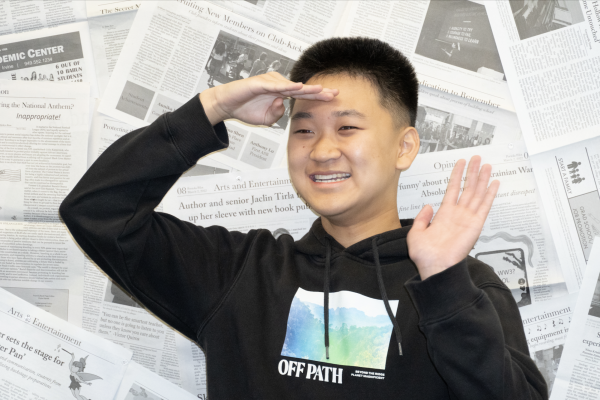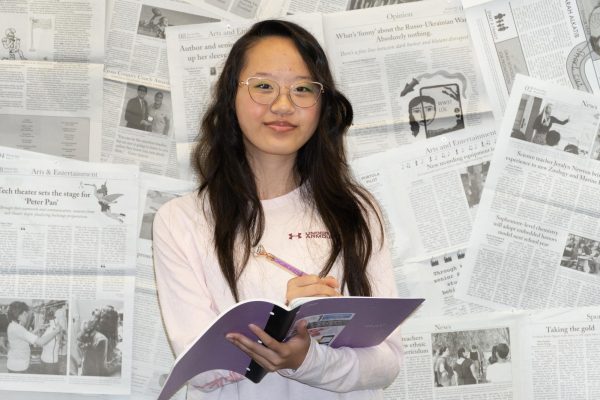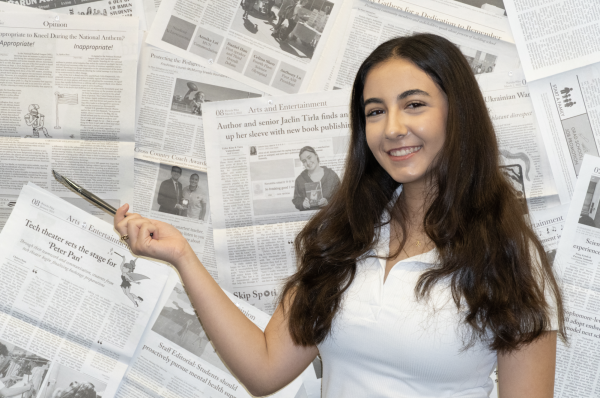Since the very beginning of our elementary education, we have had it hammered into our heads: plagiarism is bad.
It seems obvious enough. It is unethical, proof of poor scholarship and undermines the legitimacy of our work, according to Literary and Language Arts teacher Maithy Do.
But clearly, these grounds have not convinced many students, with plagiarism still being very prevalent in high schools, according to the Academic Research Guide Association.
We must adopt a new mindset surrounding the practice of plagiarism. Students should no longer consider the morality of plagiarism alone — it clearly has not done anything to stop it. Rather, we call upon the student body to carefully evaluate the detrimental slippery slope effects of plagiarism on one’s future education, career and even sociability.
The implications of plagiarism at the high school level are considerably mild compared to the consequences in higher education, but the two are markedly correlated: a reliance on cheating in high school often translates to the exact same practice in college and even relationships, according to the American Psychological Association. Like a drug, plagiarism is addictive: upon first committing the act, students will find themselves hooked on the ease of simply hitting Ctrl+C and Ctrl+V on the keyboard.
“Psychologically, this is true even in infants,” former AP Psychology student and senior Vedant Tiwari said. “We see in behavior when they don’t have a parental figure or a guardian to show them that a certain behavior is wrong, that behavior can stick with them throughout their entire life. There isn’t really any reason that this wouldn’t continue if someone can keep getting away with doing so.”
Consider former Montana senator John Walsh’s case, who held his master’s degree until being found guilty of plagiarism. The consequences were ruinous: he was forced to cancel his run for another term, as the public had lost all trust in him. The implications on our own professional futures will be no different. Plagiarism may result in litigation and employment blacklisting, threatening financial security and job stability, according to a study conducted at Brigham Young University.
Even more impactful to our daily lives may be how plagiarism irrevocably brings out the worst in people. Raising questions as to one’s academic integrity not only discredits their intellect, but also their character. Is a plagiarizer also uncaring, for they have disregarded the hard work of others? Will a plagiarizer make an untrustworthy friend, as they have also betrayed the trust of the very teachers who have sought to educate them?
Then again, some individuals may contend that plagiarism is rarely punished, but modern-day detection software, combined with harsh punishments, make the entire ordeal not worth it. Developments in anti-plagiarism software, such as turnitin.com, have made it easier than ever before to catch plagiarism, with colleges also employing dedicated faculty to offices overseeing academic integrity.
“It’s pretty obvious when writing is not yours,” Do said. “I would hope that especially for personal writing, you can dig deep into your own self and write from your heart and words, rather than having to go to the internet and make up a story.”
Like Do, Tiwari believes that plagiarism is a major barrier to truly grasping academic concepts and developing a strong work ethic.
“Learning is something that’s lifelong, and using every opportunity you have to build good habits and to not give in to those bad impulses of wanting to plagiarize can be very, very important,” Tiwari said. “Even for those classes where you might feel like ‘I’m never gonna look at this stuff again,’ simply copy-pasting in the info is nothing but a waste of your time and the teacher’s time.”
That, in a nutshell, is why students should never plagiarize: you are wasting time — time in developing genuinely essential life skills, time in constructing exceptional, original ideas, time put into working towards a stable career and time in all the more. And with very limited time in life, Portola High students should make all the more of it with our own ideas, not others’.



![Plagiarism and other forms of academic dishonesty can be addictive, fueling the practice of corner-cutting and creating other bad habits, according to the City University of New York. “Getting away with [academic dishonesty] is probably the biggest ego-booster and motivator that someone can get,” former AP Psychology student and senior Vedant Tiwari said.](https://portolapilot.com/wp-content/uploads/2023/11/Plagiarism-1200x838.png)


